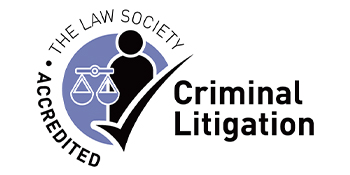STRAIN
A'I GWMNI
AND COMPANY
14A Stryd Penlan, Pwllheli, Gwynedd

Secrets and spies

Date: 2020-09-03
The Official Secrets Act protects the United Kingdom from spying and leaks. The legislation dates back to 1911, 1920, 1939 and was last updated in 1989.
Since then, there have been many advances in data technology and communications affecting the nature of unauthorised disclosures and espionage.
As a result, the Law Commission has provided a report to Parliament stating that the legislation is outdated and making recommendations as to how it can be updated to meet modern-day threats.
What recommendations have been made?
Language - the language of the Official Secrets Acts is described as being archaic; suggestions are made to replace the word “enemy” with “foreign power” to include terrorist organisations and companies controlled by a state. The terms “sketch, plan, model, note and secret official password and code word” to be replaced with “document, information or other article”, which would also include any program or data held in electronic form.
Espionage - Currently, the offence is not committed if the person is not a British national or public servant if the espionage is engaged in while abroad. The recommendation is that an offence would be committed regardless of whether an individual is a British citizen. There should, however, be a “significant” link between the person’s behaviour and the interests of the UK.
Leaks - in cases where information has been leaked, the recommendation is that the requirement that the leak has caused damage, be removed. As an alternative, there would be a need to show proof of a particular mental state such as the belief or knowledge that the leak would cause damage.
As in espionage cases, an unauthorised disclosure is not committed if made by someone who is abroad when the disclosure is made and who is not a crown servant or a British citizen. It is recommended that the Act is changed; so, it would be an offence for an unauthorised disclosure to be made by a government contractor who is abroad, regardless of their citizenship.
Defence - there would be a public interest defence available to those charged with making an unauthorised disclosure. The individual would not be guilty if it were found that there was a public interest in making the disclosure.
The Commission recommends that the defence is based on what Article 10, the right to freedom of expression, requires.
The defence should be available to anyone charged with an offence and would be a two-part test. It would require both the subject matter and also the manner of the disclosure, to be in the public interest.
Factors which define the public interest are a political question for Government and Parliament to define.
Independent Commissioner - an independent statutory commissioner would be available for public servants and civilians to report any concerns to. This would be where the disclosure of those concerns would otherwise constitute an offence. The commissioner would then investigate those concerns.
In cases where disclosing to the commissioner would not protect the person’s Article 10 rights, they would be able to advance the public interest defence. This would also apply where they nonetheless made a disclosure without authorisation.
Sentencing - for unauthorised disclosure, the current maximum sentence is two years. The Law Commission concluded that this didn’t always reflect the damage that an offence could cause or the culpability of the offender. The recommendation is for the maximum sentence to be increased although the Commission did not suggest what it should be.
What happens now?
It is for the Government to respond to the recommendation after a full review of the report.
How can we help?
If you need specialist advice, then get in touch with Carys Parry on 01758 455 500 and let us help. We can advise on a plea, defences and potential sentences in a wide range of circumstances.
Back to view all blog posts.
Our Specialties Include:
> Personal Injury
> Matrimonial & Family Law
> Criminal
> General Disputes & Litigation
Useful Information
> Legal Costs Funding & Appeals
> Resources & Articles
> Accreditations & Awards
> Testimonials
>Private Client Rates
Contact Us
Address: 14A Stryd Penlan, Pwllheli, Gwynedd
Phone: 01758 455500
E-mail: office@strainandco.co.uk

© 2024 Strain and Company. Authorised and Regulated by the SRA firm no 644052. All Rights Reserved. Privacy Notice.
Website by Delwedd.